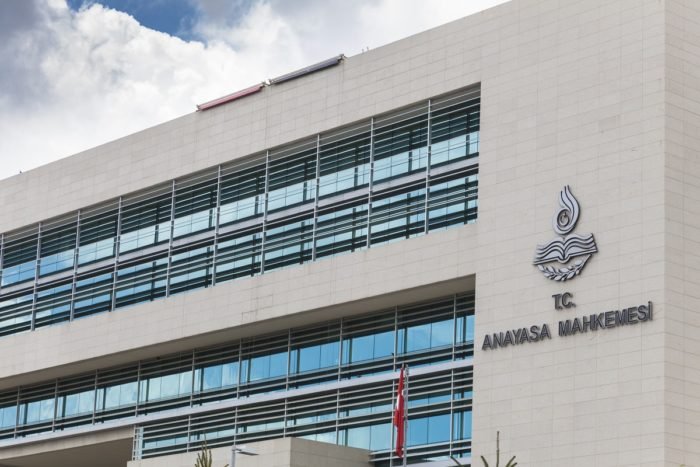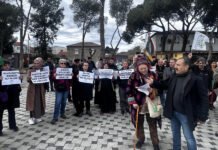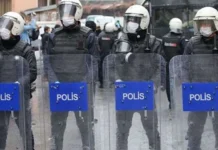Turkey’s Constitutional Court found at least one violation of human rights in each of 2,529 applications in the first nine months of this year, Turkish Minute reported on Wednesday.
The main opposition Republican People’s Party (CHP) MP Sevda Erdan Kılıç, a member of parliament’s Constitution Committee, commented on the latest statistics announced by the court, saying that the number of rights violation was 10 per day on average between January and September 2024, as she described it as a “disgrace” for Turkey.
Based on the top court’s statistics, she said the number of cases where violations have been detected since 2013, when the right to file individual applications with the Constitutional Court was introduced, has reached 76,514.
Kılıç put the blame for the widespread rights violations in the country on the Justice and Development Party (AKP) government, saying that they show how the government “trampled on our constitutional rights.”
According to the statistics, the right to trial within a reasonable period of time was the most frequently violated right in Turkey in the first nine months of 2024 with 56,443 cases. This was followed by violations of the right to a fair trial (5,487 cases), the right to property (4,661 cases), freedom of expression (4,348 cases), the right to respect for private and family life (1,622 cases), the right to organize meetings and demonstrations (1,432 cases), the prohibition of ill-treatment (1,079 cases), the right to liberty and security (420 cases), the right to life (268 cases), the right to protection of material and spiritual entity (144 cases), the right to form and join trade unions (136 cases), freedom of association (86 cases), the principle of legality in criminal law (48 cases), the right to education (39 cases), freedom of religion and belief (12 cases), the right to individual application (3 cases) and the right to request the review of a judgment (1 case).
Kılıç said the most violated rights were related to access to justice, recalling that the CHP had warned the Justice Ministry for years, saying that justice delayed is justice denied, but the ministry had never taken any action on the issue.
“The responsibility for these disgraceful figures lies with the AKP. The biggest obstacle to democracy and human rights is the AKP government,” the lawmaker said, promising that Turkey would overcome this “disgrace” after the nearest election.
Turkish judicial officials frequently face allegations of corruption and bribery as well as widespread criticism for their perceived lack of independence under the rule of President Recep Tayyip Erdoğan’s AKP government.
Erdoğan is accused of exerting absolute control over the judiciary thanks to vast powers granted to him by a presidential system of governance.
Turkey disbarred more than 4,000 judges and prosecutors immediately after an abortive putsch in 2016 over alleged ties to the Gülen movement, a faith-based group inspired by the teachings of the late Muslim preacher Fethullah Gülen that focuses on science education, volunteerism, community involvement, social work and interfaith and intercultural dialogue.
Erdoğan and his AKP government labeled the movement as a terrorist organization and accuse them of orchestrating the attempted coup, while the group strongly denies any involvement in the coup bid or any terrorist activities.
The mass disbarment of members of the judiciary is believed by many to have had a chilling effect on the entire justice system, intimidating the remaining judges and prosecutors into doing the government’s bidding by launching politically motivated investigations into critics.















